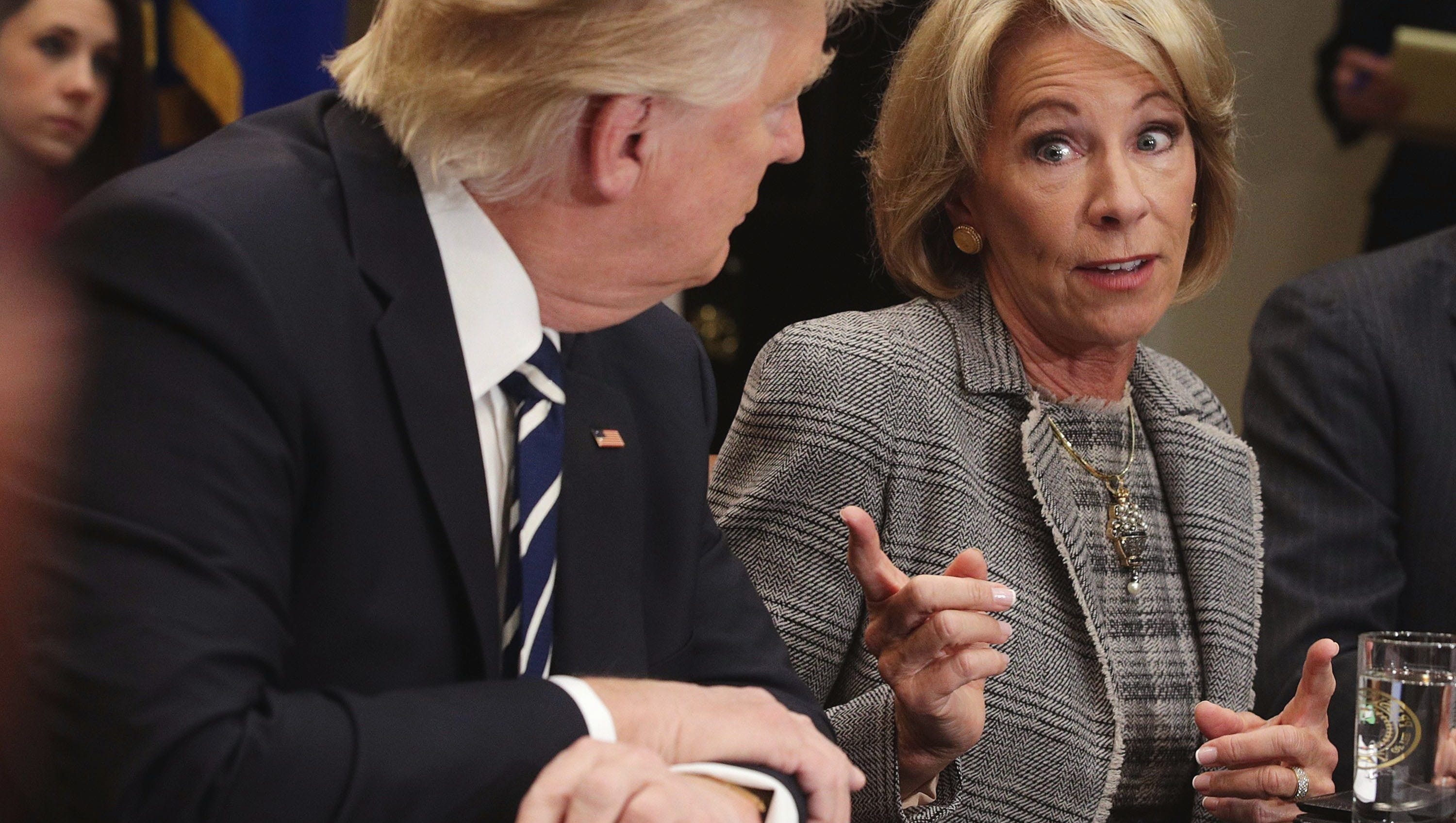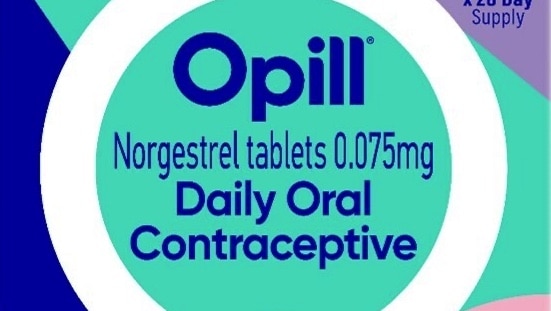Would Privatizing Student Loans Under Trump Benefit Or Harm Borrowers?

Table of Contents
Potential Benefits of Privatizing Student Loans
Advocates for privatizing student loans argued that shifting the responsibility from the government to private lenders could unlock several advantages.
Increased Competition and Innovation
Private lenders, operating in a competitive market, might offer more attractive interest rates and repayment options than government-sponsored programs. This competition could stimulate innovation, leading to the development of new loan products and services tailored to borrowers' diverse needs.
- Lower interest rates: Increased competition could drive down interest rates, making education more affordable.
- Flexible repayment plans: Private lenders might offer a wider array of repayment options, including income-driven repayment plans and deferred payment plans.
- Improved customer service: Private lenders are often incentivized to provide better customer service to retain clients, unlike government bureaucracies.
Reduced Government Burden
Privatization could significantly reduce the government's financial burden and administrative complexities associated with managing student loan programs. This could free up resources for other essential government programs.
- Decreased government spending: Shifting the financial risk to the private sector would reduce direct government expenditure on student loan programs.
- Streamlined loan processing: Private lenders might streamline loan processing, resulting in quicker application approvals and disbursement of funds.
- Less bureaucratic red tape: The private sector may be more agile and efficient than government agencies in handling student loan applications and repayments.
Targeted Lending and Risk Management
Private lenders, with their expertise in credit assessment and risk management, could potentially improve the accuracy of evaluating borrowers' creditworthiness. This may lead to more responsible lending practices, reducing the overall risk of default.
- Improved credit scoring models: Private lenders may employ more sophisticated credit scoring models to assess borrower risk more accurately.
- More accurate risk assessment: This could lead to more responsible lending, avoiding loans to borrowers unlikely to repay.
- Reduced defaults: Better risk assessment could contribute to a lower default rate on student loans.
Potential Harms of Privatizing Student Loans
Despite the potential benefits, privatizing student loans presents significant risks and potential harms for borrowers.
Increased Costs for Borrowers
The promise of increased competition might not always materialize. Private lenders, driven by profit motives, could charge higher interest rates and fees compared to government programs, ultimately increasing the overall cost of education for borrowers.
- Higher interest rates: The absence of government subsidies could lead to significantly higher interest rates for borrowers.
- Increased fees: Private lenders may introduce various fees, such as origination fees or late payment fees, which could add to the total cost.
- Less consumer protection: Government regulations often provide greater consumer protection than the private sector, which might lead to exploitation.
Reduced Access to Loans for Vulnerable Borrowers
Privatization could disproportionately affect low-income students and students from underrepresented groups. Private lenders, focused on minimizing risk, might impose stricter eligibility requirements, limiting access to loans for these vulnerable populations.
- Higher eligibility requirements: Private lenders may require higher credit scores and more substantial collateral, excluding many deserving students.
- Limited loan amounts: Private lenders might offer smaller loan amounts, making it difficult for students to cover the full cost of their education.
- Difficulty accessing loans for students with poor credit history: Students with poor credit history may find it virtually impossible to secure loans from private lenders.
Lack of Government Oversight and Accountability
Shifting student loan programs to the private sector could lead to reduced government oversight and accountability. This could create opportunities for fraud and predatory lending practices, leaving borrowers with little recourse.
- Reduced consumer protection: Without strong government regulation, borrowers may be left vulnerable to unfair lending practices.
- Increased risk of fraud: Less government oversight might increase the risk of fraudulent activities by private lenders.
- Difficulty enforcing regulations: Enforcement of consumer protection laws and regulations might be more challenging when dealing with private lenders.
Conclusion
Privatizing student loans under the Trump administration presented a complex dilemma, offering potential benefits like increased competition and reduced government burden, but also significant risks of increased costs, reduced access, and decreased accountability for borrowers. The decision to privatize student loans involves a delicate balance between encouraging private sector efficiency and ensuring equitable access to higher education for all students. To form your own informed opinion, learn more about the impact of privatizing student loans and research the implications of student loan privatization on borrowers. Understanding the complexities of student loan debt and the potential consequences of policy changes like privatization is crucial for making informed decisions about your future.

Featured Posts
-
 Fortnites In Game Store Epic Games Faces Fresh Legal Action
May 17, 2025
Fortnites In Game Store Epic Games Faces Fresh Legal Action
May 17, 2025 -
 Fortnite And Cowboy Bebop Collaboration Limited Time Freebies
May 17, 2025
Fortnite And Cowboy Bebop Collaboration Limited Time Freebies
May 17, 2025 -
 Post Roe America How Otc Birth Control Is Reshaping Reproductive Healthcare
May 17, 2025
Post Roe America How Otc Birth Control Is Reshaping Reproductive Healthcare
May 17, 2025 -
 New York Knicks Thibodeaus Take On Game 2 Referee Performance
May 17, 2025
New York Knicks Thibodeaus Take On Game 2 Referee Performance
May 17, 2025 -
 Trusted Australian Crypto Casino Sites For 2025
May 17, 2025
Trusted Australian Crypto Casino Sites For 2025
May 17, 2025
Latest Posts
-
 Prensa Latina Previsiones Deportivas Para La Semana
May 17, 2025
Prensa Latina Previsiones Deportivas Para La Semana
May 17, 2025 -
 Noticias Deportivas Y Previsiones Semanales De Prensa Latina
May 17, 2025
Noticias Deportivas Y Previsiones Semanales De Prensa Latina
May 17, 2025 -
 Montecarlo 2024 La Alegria Reflejada En El Juego De Alcaraz
May 17, 2025
Montecarlo 2024 La Alegria Reflejada En El Juego De Alcaraz
May 17, 2025 -
 Previsiones Deportivas De Prensa Latina Resultados Y Apuestas De La Semana
May 17, 2025
Previsiones Deportivas De Prensa Latina Resultados Y Apuestas De La Semana
May 17, 2025 -
 Ban Ket Miami Open 2025 Lieu Djokovic Hay Alcaraz Se Gianh Chien Thang
May 17, 2025
Ban Ket Miami Open 2025 Lieu Djokovic Hay Alcaraz Se Gianh Chien Thang
May 17, 2025
